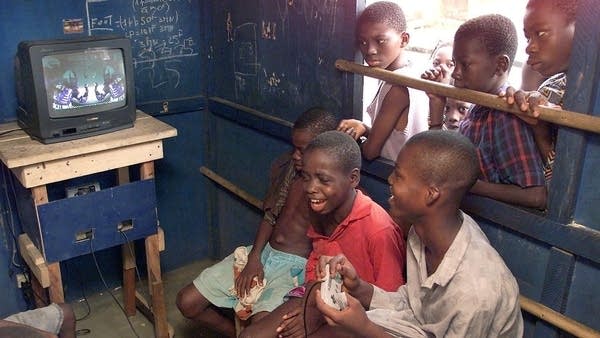The number of gamers in Africa has doubled in recent years, but many gaming platforms require users to pay for subscriptions or make in-game purchases. That’s a problem for users who don’t have credit cards, but some fintech companies think they have a solution.

This story was produced by our colleagues at the BBC.
The number of gamers in Africa has doubled over the last five years, according to the Dutch research company Newzoo. It predicts Africa’s gaming industry will generate more than $1 billion this year for the first time ever. Much of the growth, which is being led by Nigeria and South Africa, is down to the continent’s young population, increased internet access and cheaper smartphones. But paying for subscriptions and making in-game purchases remain a challenge.
“Card penetration in Africa is only 2.7%,” said Lucy Hoffman, co-founder and chief operating officer of Carry1st, a Cape Town-based video game publisher. “A lot of the traditional platforms like Google Play or Apple rely on credit cards, and therefore a lot of our players just can’t buy the content they want. A big focus for us has been sort of bridging the gap.”
Hoffman said her company has already made inroads into finding payment solutions for gamers across Africa — like Pay1st.
“Essentially we integrate with payment methods that are available in Nigeria. That may be OPay, which is a wallet. It may be bank transfer, so like instantly transferring from one bank account to the next. And players can come to our shop or web shop and buy content that they love using payment methods that are accessible to them,” she explained.
So how do gamers in Cape Town, South Africa, pay for their games? Shakeel Kajee, who regularly plays a PlayStation 5, said there are two ways.
“You can either do it via credit or debit card, which is what most people do. Or you can go to any supermarket and you can buy these voucher codes. So you load [500 rand], for example, on to the card at the counter when you buy it.”
He said paying by voucher code or a local payment platform also stops young gamers from running up big bills.
“The debit card automatically saves on the PlayStation. It doesn’t come off unless you click that setting. I’ve heard stories about younger children who just end up buying more and more extra on the card and then it racks up a massive bill.”
But other gamers, like Raeed Daniels, don’t have a credit card or any way of paying online. He relies on freebies instead.
“Sometimes PlayStation will give you, like, a free trial. I think last time it happened to me, they gave me a 14-day free trial, so then I could play FIFA online against other people, I get access to free games.”
Glenn Gillis, the chief executive of Cape Town-based game developer Sea Monster Entertainment, believes there’s much more exciting potential for gaming industry growth in Africa compared to traditional markets like Europe and the U.S.
“You know, those markets are mature. They’re aging, and there’s not a lot of growth there. Whereas all the exciting things really are happening across the continent,” he said.
Gillis knows there are challenges on the ground, but he’s confident there’s more opportunity in the gaming market in Africa than anywhere else in the world. Game developers and fintech companies are trying to turn that into millions of dollars.